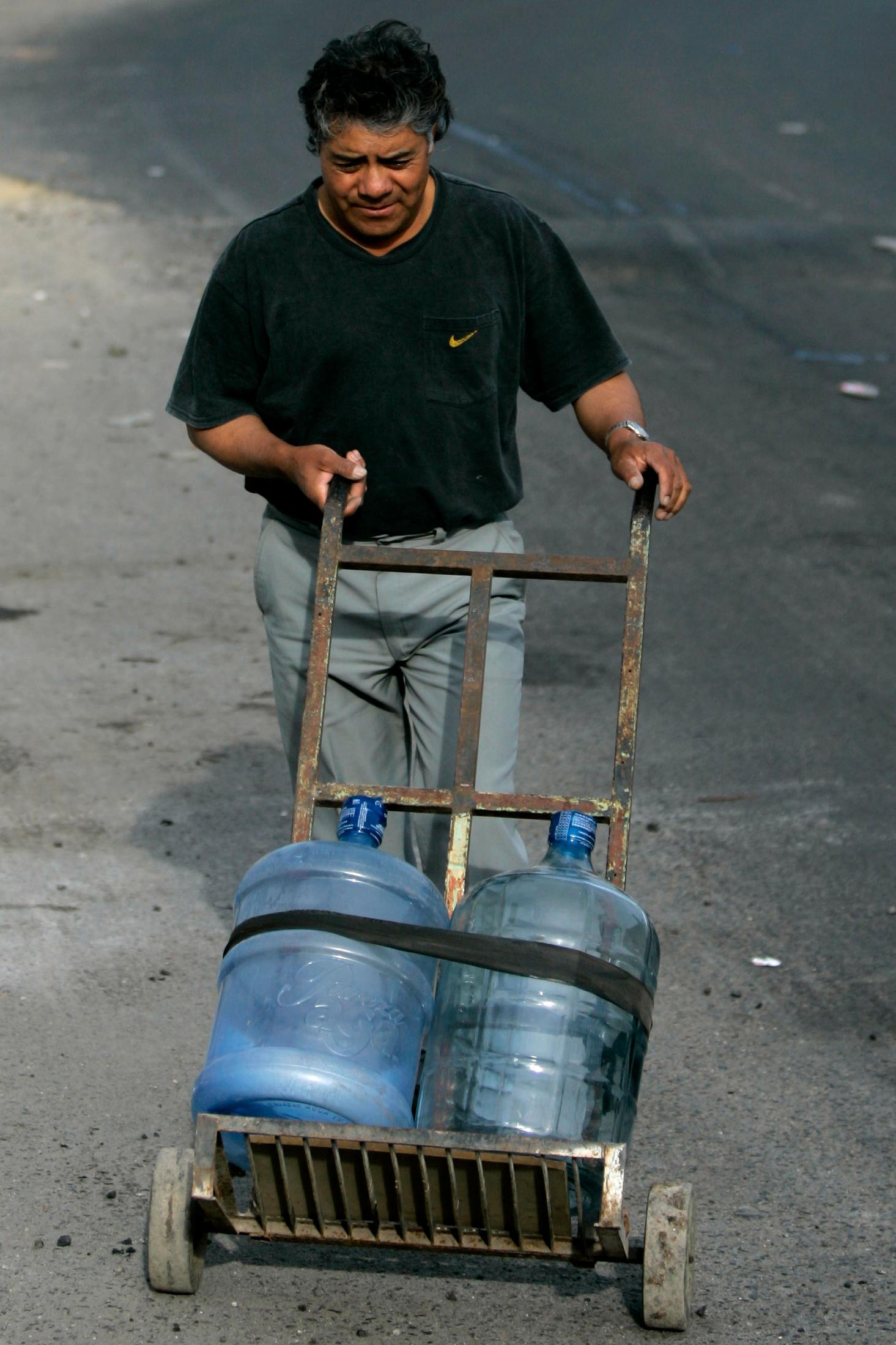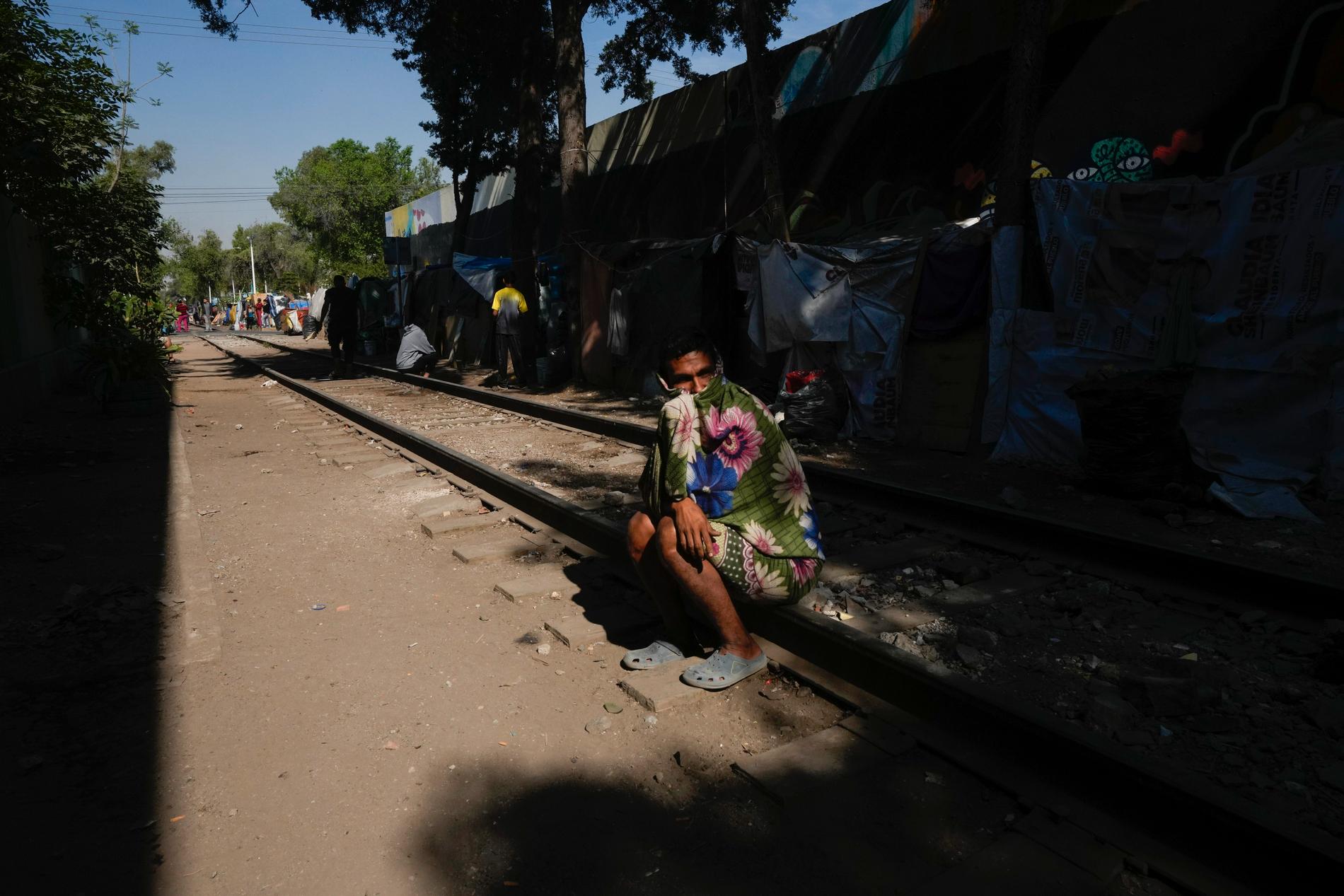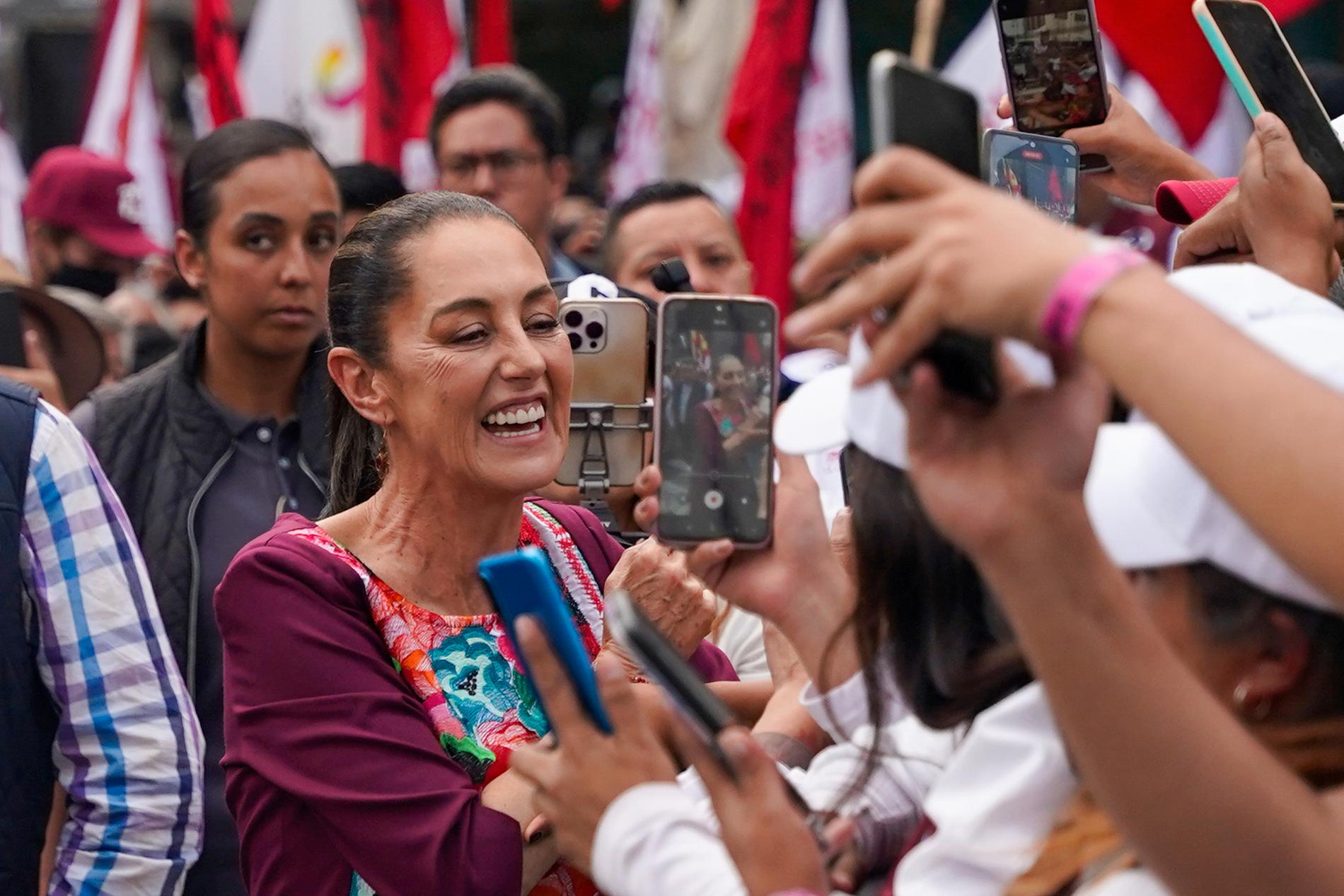
Climate & environment
Water shortages in big cities have become a new everyday occurrence
Tough rationing in the 22-million city of Mexico City
Christina Nordh
Updated 2024-03-28 09.23 | Published 2024-03-27 09.21

A man drives home his drinking water in Mexico City. (File image.) Photo: Dario Lopez-Mills / AP
The taps have run out of water for several weeks.
When the water truck arrives, the relief is great.
- Thank God! The water finally came! says Reina Cervantes Trejo with relief.
The water mains in Mexico City have been empty for several weeks. Cervantes and her husband hurried to help the driver with the hoses to fill the cistern and a hopper lid of water containers: plastic boxes, pans—anything that can be filled with water.
Cervantes' daughter has been calling the authorities almost every day, pleading for the tanker truck with water to come to their working-class neighborhood in southern Mexico City, the Los Angeles Times writes.

A migrant seeks shade in Mexico City. Archive image. Photo: Fernando Llano/AP
Several large cities affected
Water shortages have become a frightening everyday occurrence in several cities around the world: Los Angeles in the United States, Cape Town in South Africa, Jakarta in Indonesia and Barcelona in Spain to name a few.
In Barcelona, the water reservoir, which was completed almost 60 years ago, is about to dry up - only 15 percent of the giant dam's water remains, writes SVT Nyheter.
- It is a completely dead area. It should be full of water and life but now it's like a desert, says visitor Oreol Noguera to the television channel.
In Mexico City, the authorities are forced to bring in water from sources further from the cities due to the continued climate changes
- Water sources are flowing all over the world. Every year, more cities will face "Day Zero" without water in the pipes, says Victoria Beard, professor of city and regional planning at Cornell University, to the newspaper.
Mexico City usually suffers flash floods and floods during the rainy season and for years has concentrated on getting rid of the water, not getting it. But uncontrolled growth, authorities who did not understand the seriousness, inadequate infrastructure, rising temperatures and decreasing rainfall have brought the city of 22 million to a breaking point.
- The water shortage has really worsened this year. What we are going through now is the worst we have ever seen, Claudia Rojas Serna, a hydraulic engineer at the city's Autonomous Metropolitan University, told the newspaper.
Rationing introduced
Now there is strict water rationing, according to residents, running water is sometimes available for an hour for a week or less.
The rich can buy their water from private suppliers. But that is not an option for the vast majority. For them, it's about trying to get their name on the handwritten lists that the water tankers follow.
- Without water, what do we do? When I saw that the water tank finally arrived, I jumped for joy, says Alejandra Rodríguez, 53.
It was the first tanker in nearly two months and now, in Mexico's election year, protests are growing and protesters are demanding access to water. They regularly block streets and highways.

Presidential candidate Claudia Sheinbaum has been told to drink the water that comes with the tankers. Photo: Aurea De Rosario / AP
The call: Drink the water!
61-year-old Claudia Sheinbaum, the presidential candidate of the ruling Democratic Revolutionary Party, boasts of improving the city's water department during her 2018-2023 term as mayor.
The opposition has now challenged her to publicly drink the water that comes with the tankers, which the city says is potable.
- We stand on the edge of the abyss. We will end up in a situation that we will not be able to handle, said José Luis Luege Tamargo, 70, former head of the National Water Commission – now linked to the opposition.
However, 73-year-old President Andrés Manuel López Obrador's allies on the left dismiss everything as alarmist propaganda.
- There is no "Day Zero". It is fake, fake news from the conservative opposition. Potable water in Mexico City is guaranteed in the short, medium and long term, says the mayor of the city, Marti Batres, 57.
Inga kommentarer:
Skicka en kommentar